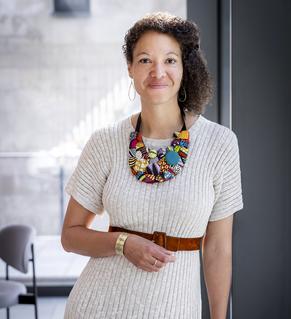Solar start-up transforms farm waste into activated carbon for vital industries
In Ghana mining companies rely heavily on imported activated carbon. A father-daughter duo is changing this by producing activated carbon locally from agricultural residues using solar energy and circular economy principles.
- Name:
Dr Hedda Ofoole Knoll
- Professional background:
Master’s in Economics and Social Sciences, PhD in Corporate Social Responsibility, 15 years in trade promotion and consulting
- Business idea:
To transform agricultural residues into activated carbon for industrial applications such as mining, water purification and the pharma industry
- Company name:
Lankai Ltd.
- Business site:
Ghana

In Ghana the mining industry needs tons of activated carbon for their extraction processes, but until now they have had to rely on imports. Meanwhile, coconut and palm nut shells are often discarded as farm waste. For Dr Hedda Ofoole Knoll these residues became the foundation for the start-up Lankai, which transforms them into activated carbon, making the company the first local producer in Ghana. While primarily used in mining, activated carbon can also serve other sectors, such as the pharmaceutical industry or be used for water purification.
Hedda has a background in trade promotion and consulting, as well as a PhD in Corporate Social Responsibility. She was inspired by her migration experience and motivated to step into entrepreneurship through GIZ’s Business Ideas for Development (BID) initiative. BID provided both inspiration and a valuable network, allowing her to connect with the start-up scene in Berlin and the women’s business network in Ghana.
Hedda designed Lankai around local and sustainable solutions, together with her father, Prof. Dr Moses Yartey Mensah, co-founder of Lankai, who spent 25 years in Germany gaining expertise in solar energy. Rather than relying on large, imported machinery, they chose to develop smaller, locally built equipment powered by solar energy, which makes the production process carbon neutral. As Hedda explains, her father’s inventive approach continues to shape the company: “If you don’t have the financial resources or the tools you need, you have to be inventive and think outside the box.”
What truly impressed me is that almost everyone in the BID 2025 cohort who aims to build a start-up in their country of origin is deeply committed to creating social impact.